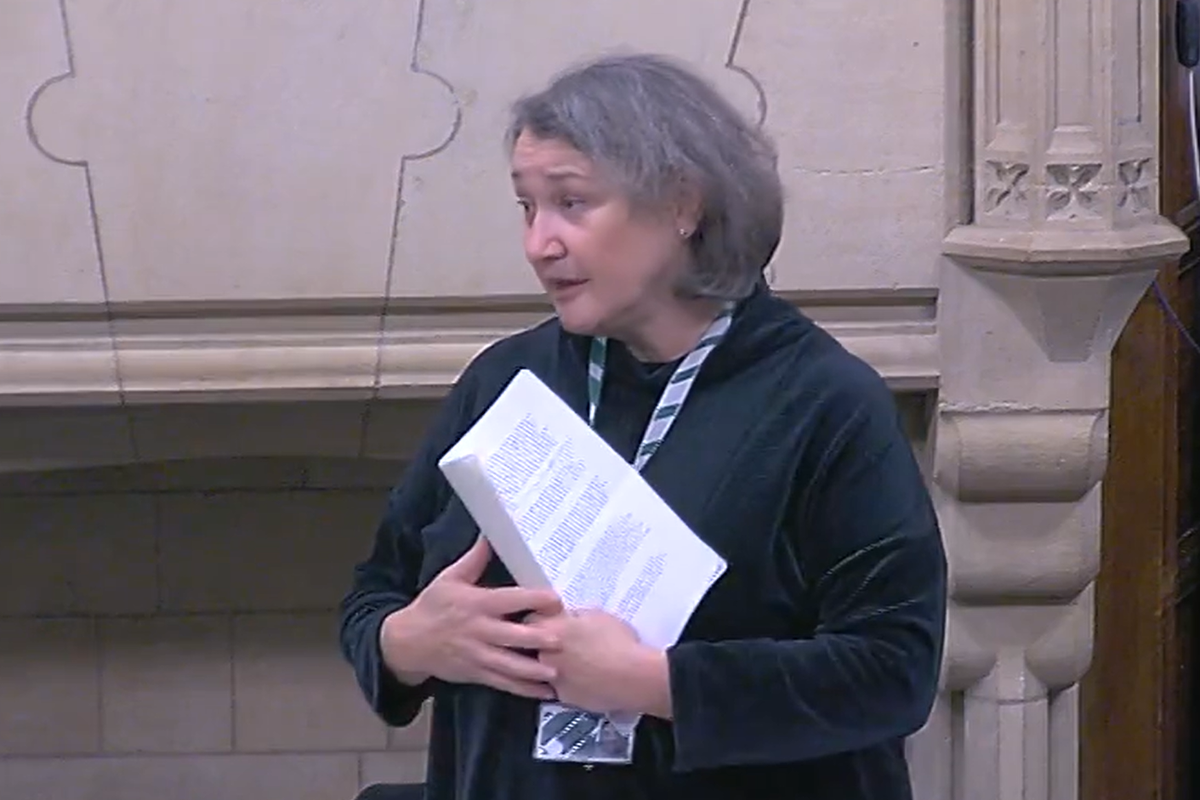
A Conservative MP came close to tears as she shared the experience of losing her first baby.
Hartlepool MP Jill Mortimer urged ministers to invest in more midwifery to give the best care to new mothers, as she shared her experiences during a debate on baby loss.
She told the Westminster Hall debate: “I lost my first baby in the very early weeks of pregnancy, and I was told by a very kindly midwife that sometimes you have to lose a baby to ripen the womb. This made me feel dreadful.
“I fought very hard not to grieve openly for that loss because I felt guilty that I should not. Forgive me: I am full of cold and dosed up, so I will get very emotional.”
The MP spoke about being “left for long periods without being checked” during her pregnancy and how she nearly died after an emergency forceps delivery.
It was only during her third pregnancy that she said she “experienced continuity of care, which was wonderful”.
But becoming visibly upset, she added that she looked back at her daughter’s birth with “mixed emotions”, telling MPs: “There should have been two of them. Very early in that pregnancy I again started to bleed.
“I bled with my first son and ended up spending a week in hospital, with people saying to me, ‘Don’t worry, it’s very early on, you’ll have another baby’.
“I did not know how to feel or how to grieve, while having to put all my efforts into sustaining my pregnancy, fearful every day that I would lose the baby I still carried. I was lucky that my beautiful daughter was born safe and healthy, but that loss never goes away.”
Ms Mortimer said: “Sadly, experiences 25 years on from mine have not got any better.
“Baby loss still happens all too often. We simply need more midwives so that they can feel confident that they are providing the very best care they can to all mothers.”
She claimed, “maternity staff are still exhausted” from Covid, urged the Government to prevent the “vicious cycle” of more and more midwives leaving the profession, and called on ministers to “commit to increasing investment in maternity services and fulfilling the shortfall of 2,000 midwives and 500 consultant gynecologists and obstetricians”.
Conservative former minister Guy Opperman also told MPs about the experience of losing his newborn twins.
“I have had three children but was able to take only one home from hospital,” he said, adding: “Teddy and Rafe came and went in the summer of 2020, briefly, and were loved all too shortly.”
He emphasised that “consistency across the NHS is key” to preventing a postcode lottery in maternity care, adding: “We all have to accept that mistakes are made and that giving birth is a fragile process, but we should expect the NHS and our Government to promote consistency of approach in dealing with the individual issues that mums and dads have.”
Shadow health minister Feryal Clark said the Government needed to take concrete action on the NHS workforce, telling MPs: “We just do not have the staff to provide the good and safe care needed to prevent the avoidable loss of babies.”
Health minister Dr Caroline Johnson told MPs that the Government remains “committed to our maternity safety ambition” but added work was taking place to establish why the number of stillbirths rose during the pandemic.
Dr Johnson said the Government had invested £127 million “in bolstering the maternity workforce even further”, on top of a £95 million investment to establish 1,200 more midwifery posts and 100 more consultant obstetrician posts.
She added: “Every woman giving birth has the right to a safe birth, and the Government and NHS England are committed to providing women with personalised and individual maternity care.
“The role of NHS staff in maternity services is critical to safe care for families, and I recognise all the great, hard work by teams across the country and thank them for it.”







